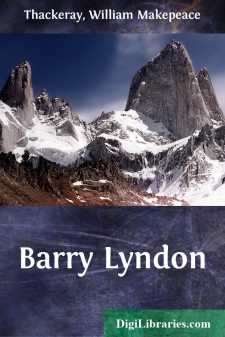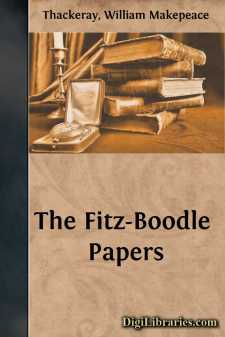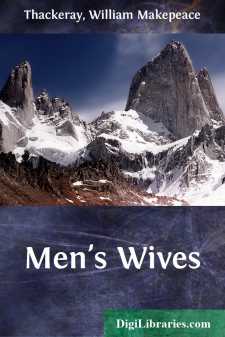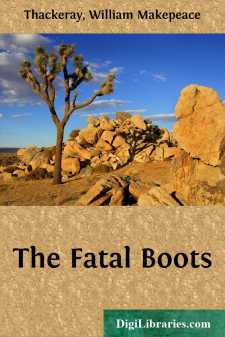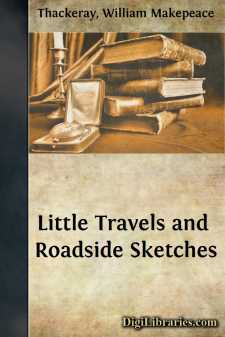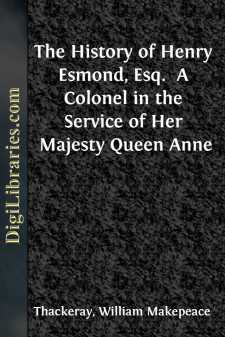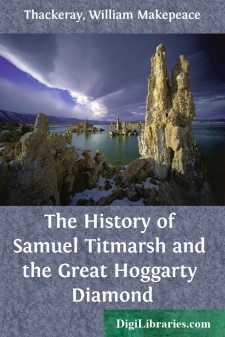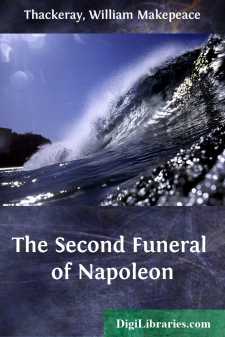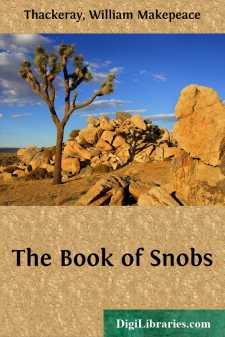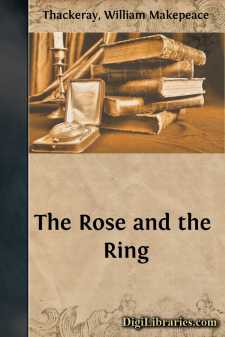Categories
- Antiques & Collectibles 13
- Architecture 36
- Art 48
- Bibles 22
- Biography & Autobiography 813
- Body, Mind & Spirit 142
- Business & Economics 28
- Children's Books 17
- Children's Fiction 14
- Computers 4
- Cooking 94
- Crafts & Hobbies 4
- Drama 346
- Education 46
- Family & Relationships 57
- Fiction 11829
- Games 19
- Gardening 17
- Health & Fitness 34
- History 1377
- House & Home 1
- Humor 147
- Juvenile Fiction 1873
- Juvenile Nonfiction 202
- Language Arts & Disciplines 88
- Law 16
- Literary Collections 686
- Literary Criticism 179
- Mathematics 13
- Medical 41
- Music 40
- Nature 179
- Non-Classifiable 1768
- Performing Arts 7
- Periodicals 1453
- Philosophy 64
- Photography 2
- Poetry 896
- Political Science 203
- Psychology 42
- Reference 154
- Religion 513
- Science 126
- Self-Help 84
- Social Science 81
- Sports & Recreation 34
- Study Aids 3
- Technology & Engineering 59
- Transportation 23
- Travel 463
- True Crime 29
William Makepeace Thackeray
William Makepeace Thackeray was an English novelist and satirist, best known for his novel "Vanity Fair," which offers a scathing critique of early 19th-century British society. Born on July 18, 1811, in Calcutta, India, Thackeray's works often explored themes of social climbing and hypocrisy. His wit and keen observations made him one of the leading literary figures of the Victorian era.
Author's Books:
Sort by:
A BIBLIOGRAPHICAL NOTE Barry Lyndon—far from the best known, but by some critics acclaimed as the finest, of Thackeray's works—appeared originally as a serial a few years before VANITY FAIR was written; yet it was not published in book form, and then not by itself, until after the publication of VANITY FAIR, PENDENNIS, ESMOND and THE NEWCOMES had placed its author in the forefront of the...
more...
CHAPTER I. THE ALBUM—THE MEDITERRANEAN HEATH. Travelling some little time back in a wild part of Connemara, where I had been for fishing and seal-shooting, I had the good luck to get admission to the chateau of a hospitable Irish gentleman, and to procure some news of my once dear Ottilia. Yes, of no other than Ottilia v. Schlippenschlopp, the Muse of Kalbsbraten-Pumpernickel, the friendly little...
more...
In a certain quiet and sequestered nook of the retired village of London—perhaps in the neighbourhood of Berkeley Square, or at any rate somewhere near Burlington Gardens—there was once a house of entertainment called the "Bootjack Hotel." Mr. Crump, the landlord, had, in the outset of life, performed the duties of Boots in some inn even more frequented than his own, and, far from being...
more...
JANUARY.—THE BIRTH OF THE YEAR. Some poet has observed, that if any man would write down what has really happened to him in this mortal life, he would be sure to make a good book, though he never had met with a single adventure from his birth to his burial. How much more, then, must I, who HAVE had adventures, most singular, pathetic, and unparalleled, be able to compile an instructive and...
more...
I.—FROM RICHMOND IN SURREY TO BRUSSELS IN BELGIUM . . . I quitted the "Rose Cottage Hotel" at Richmond, one of the comfortablest, quietest, cheapest, neatest little inns in England, and a thousand times preferable, in my opinion, to the "Star and Garter," whither, if you go alone, a sneering waiter, with his hair curled, frightens you off the premises; and where, if you are bold...
more...
THE ESMONDS OF VIRGINIA. The estate of Castlewood, in Virginia, which was given to our ancestors by King Charles the First, as some return for the sacrifices made in his Majesty's cause by the Esmond family, lies in Westmoreland county, between the rivers Potomac and Rappahannock, and was once as great as an English Principality, though in the early times its revenues were but small. Indeed, for...
more...
CHAPTER I GIVES AN ACCOUNT OF OUR VILLAGE AND THE FIRST GLIMPSE OF THE DIAMOND When I came up to town for my second year, my aunt Hoggarty made me a present of a diamond-pin; that is to say, it was not a diamond-pin then, but a large old-fashioned locket, of Dublin manufacture in the year 1795, which the late Mr. Hoggarty used to sport at the Lord Lieutenant’s balls and elsewhere. He wore it, he...
more...
I.—ON THE DISINTERMENT OF NAPOLEON AT ST. HELENA. MY DEAR ——,—It is no en the Voyage from St. Helena asy task in this world to distinguish between what is great in it, and what is mean; and many and many is the puzzle that I have had in reading History (or the works of fiction which go by that name), to know whether I should laud up to the skies, and endeavor, to the best of my small...
more...
(The necessity of a work on Snobs, demonstrated from History, and proved by felicitous illustrations:—I am the individual destined to write that work—My vocation is announced in terms of great eloquence—I show that the world has been gradually preparing itself for the WORK and the MAN—Snobs are to be studied like other objects of Natural Science, and are a part of the Beautiful (with a large...
more...
I. SHOWS HOW THE ROYAL FAMILY SATE DOWN TO BREAKFAST This is Valoroso XXIV., King of Paflagonia, seated with his Queen and only child at their royal breakfast-table, and receiving the letter which announces to His Majesty a proposed visit from Prince Bulbo, heir of Padella, reigning King of Crim Tartary. Remark the delight upon the monarch's royal features. He is so absorbed in the perusal of the...
more...


